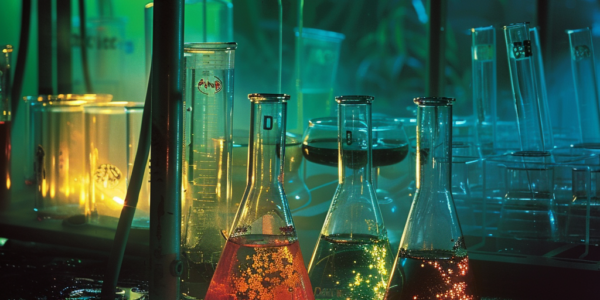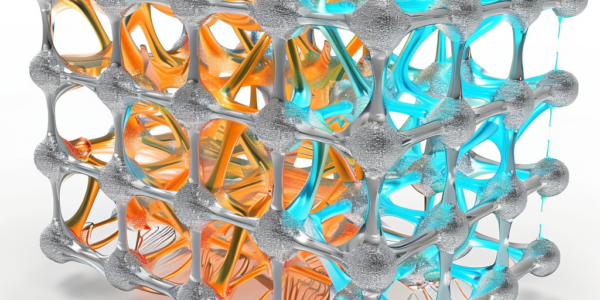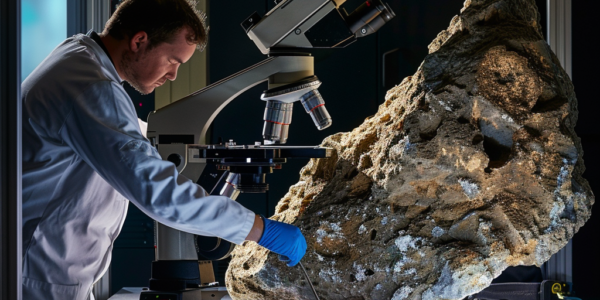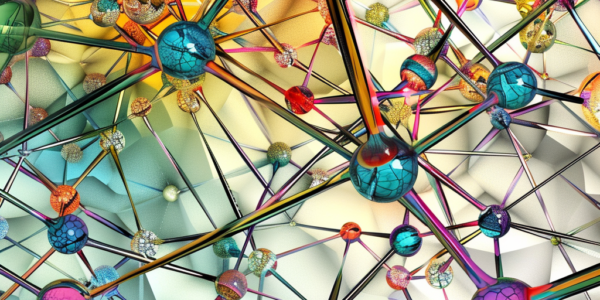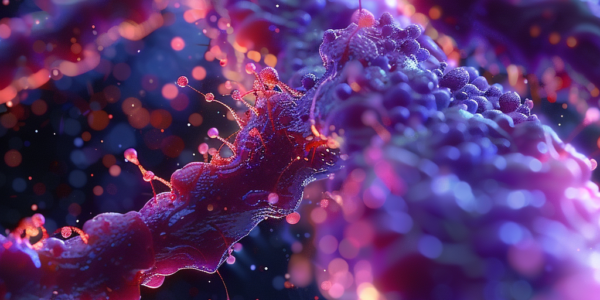Revolutionary ‘Artificial Leaf’ Technology Converts Solar Energy into Hydrogen Fuel
Scientists have unveiled a revolutionary ‘artificial leaf’ technology that converts solar energy into hydrogen fuel through direct water splitting. This innovative approach offers enhanced efficiency, cost-effective production, and global implications for sustainable energy solutions. The use of recyclable materials and low-melting-point metals points to a cost-effective and scalable approach for manufacturing solar energy conversion devices, potentially revolutionizing energy systems worldwide.
Synthesis of Pantetheine Under Everyday Conditions Suggests Origins of Life
Researchers have synthesized pantetheine, a crucial component of acetyl coenzyme A, under everyday conditions, suggesting it could have formed naturally on early Earth. This finding could have implications for the origins of life and the synthesis of biologically crucial chemicals.
Korean Researchers Develop Breakthrough in Hydrogen Storage Technology
Korean researchers have developed a nanoporous material capable of holding hydrogen at twice the density of its cryogenic liquid form, offering a compelling alternative to traditional storage methods. This breakthrough represents a significant advancement in hydrogen storage technology, addressing the challenges of large-scale storage and potentially accelerating the adoption of hydrogen as a clean and efficient fuel across various industries.
New Tech Turns CO2 into Chemicals with 93% Efficiency, Runs Record 5000 Hrs
New tech developed at Huazhong University of Science and Technology in China has achieved a 93% efficiency in turning CO2 into chemicals, running for a record 5000 hours. This breakthrough could revolutionize industrial-scale projects aimed at reducing carbon dioxide in the atmosphere.
Groundbreaking Discovery in Winchcombe Meteorite
Scientists have made a groundbreaking discovery in the Winchcombe meteorite, identifying key nitrogen compounds, including amino acids and hydrocarbons, without chemical treatments, using a novel detector design. This finding is significant for research into life’s origins on Earth and has been facilitated by a high-resolution electron microscope at the SuperSTEM laboratory. The research team, in collaboration with British colleagues, has demonstrated, with a high degree of precision, the existence of important nitrogen compounds in the meteorite, including amino acids and heterocyclic hydrocarbons, without applying any chemical treatment, using a new type of detector design. The results of this study have been published in the journal Nature Communications.
Scientists Capture Movement of Electrons in Real-Time Within Liquid Water
Scientists have captured the movement of electrons in real-time within liquid water, providing unprecedented insights into the electronic structure of molecules in the liquid phase. This groundbreaking experiment sheds light on the effects of radiation exposure and holds promise for understanding the effects of prolonged exposure to ionizing radiation on nuclear waste.
New Approach to Superionic Lithium Transport
A recent study in Science has revealed a novel approach to achieving superionic lithium transport, leading to the creation of a pure lithium ion conductor with significant implications for advanced energy storage materials. The research explores the concept of superionic lithium transport via multiple coordination environments defined by two-anion packing, offering low barriers to transport and paving the way for a new class of solid electrolytes with enhanced lithium ion conductivity.
Groundbreaking Discovery in Energy Guidance Within Cells
Groundbreaking research at the University of Gothenburg reveals how proteins undergo structural changes to efficiently guide energy within cells, potentially leading to the development of more efficient solar cells in the future. The study, published in Nature Chemistry, provides valuable insights into the intricate mechanisms of energy guidance within cells and offers potential applications in solar panels, batteries, and other energy transport technologies.
Exploring the Quest for the Limit of the Periodic Table
Discover the latest review exploring the quest for the limit of the periodic table and the characteristics of the so-called island of enhanced stability. Learn about the visualizations of an island of stability of superheavy nuclei and the major challenges in theoretical and experimental chemistry and physics.
Groundbreaking Discovery in Chemistry: Elusive Water Structure Isolated and Observed by Researchers at RIKEN
RIKEN researchers have isolated and observed an elusive water structure involving two water molecules, a groundbreaking discovery with implications for fields such as astrochemistry and metal corrosion. By trapping water dimer ions in tiny droplets of cold helium, the team was able to determine the structures of the isomers, marking a significant advancement in the field of chemistry.


